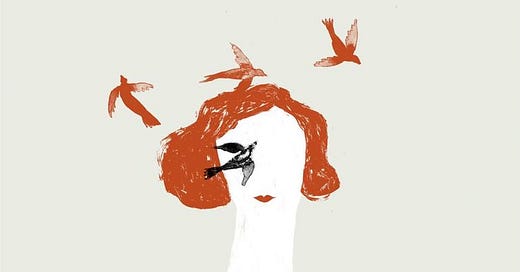It was me against the book, and the book was winning.
I was in the most beautiful place imaginable. In a turn of good luck, the deciding foundation notified me in early 2022 that I’d been admitted to a competitive writing residency in the seaside town of Cassis, France, where I would have five weeks to work on my forthcoming novel. The runway to the residency itself was a tricky one—I hadn’t realized that my passport needed to be valid for at least five weeks after my departure date, which meant getting a new one made and rushed for pick-up; I had an emergency surgery that occurred immediately before I was to leave, which meant that my recuperation cut a week-and-a-half into residency time. By the time I was finally given the go-ahead to depart for Cassis, I was both excited and lathered in foreboding. But the point was to work hard on my novel in an exquisite, faraway space. I promised myself that I wouldn’t waste it.
Did I mention that it was beautiful? My red-tiled studio, furnished with a living room, kitchen, bedroom, and bathroom, overlooked the luminously blue ocean to such a profound degree that when I lay in bed, it looked like I could step out of the double doors, which actually opened out onto a balcony, and plummet directly into the sea. And yet I was unprepared for the biggest problem I had to face as I began my four weeks of writing: that the novel that I was working on seemed hell-bent on killing me.
I’ve been struggling with complex PTSD and PTSD since 2014. Even in my cottage at the Hedgebrook residency, where I was working on The Collected Schizophrenias, I frequently woke up screaming with the background of crickets and frogs symphonic behind my shrieks. But that was when I was writing a different book—a book that was still difficult to write, but a different book all the same.
Keep reading with a 7-day free trial
Subscribe to REASONS FOR LIVING with Esmé Weijun Wang to keep reading this post and get 7 days of free access to the full post archives.






